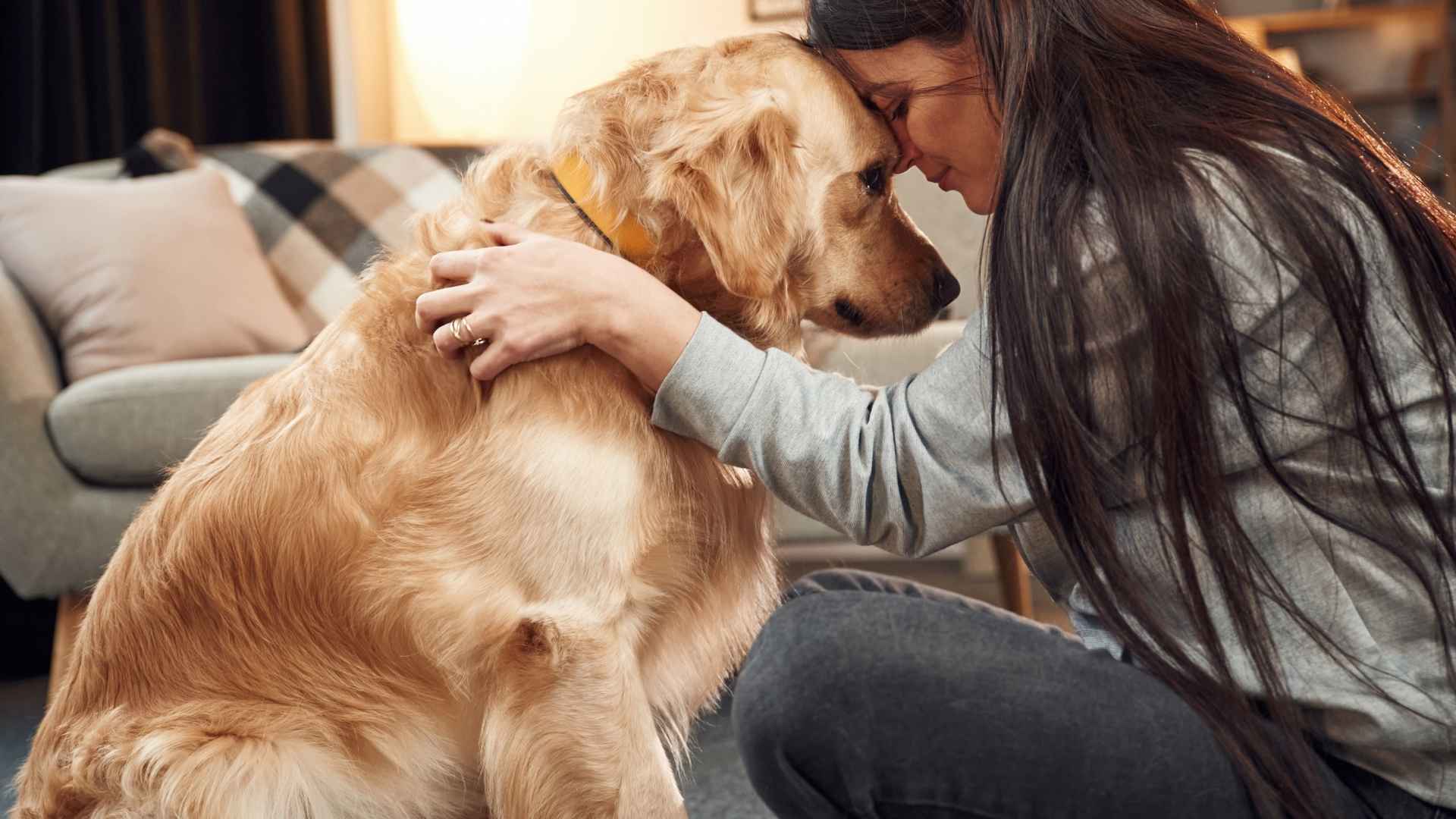Do you know dogs are the top choice for pet therapy? Why? Because dogs have a heart-healing superpower. With just one look, one snuggle, they bring calm to chaos and comfort to pain.
Over 58% of hospices in the U.S. that offer alternative therapies include pet therapy in their care programs, according to the CDC.
Whether you’re facing stress, sadness, or simply need a soft paw to hold, some dog breeds are born to be therapy heroes. Therapy Dogs don’t need to talk—just being there is enough.
Let’s dive into the most emotionally intuitive dog breeds that help humans feel seen, safe, and loved. Get ready to meet your four-legged soul soothers.
Emotional Dog Breeds for Therapy
When it comes to emotional support, not all dogs are created equal. Some breeds are naturally more affectionate, intuitive, and calm, making them better suited for comforting people in need.
These dogs don’t just offer cuddles; they can help ease anxiety, reduce stress, and support mental wellness with their steady presence.
Whether in a therapy setting or simply at home, the right breed can make all the difference. Below are the best emotional support dog breeds known for their heart, sensitivity, and strong bonds with their humans.
1. Australian Shepherd
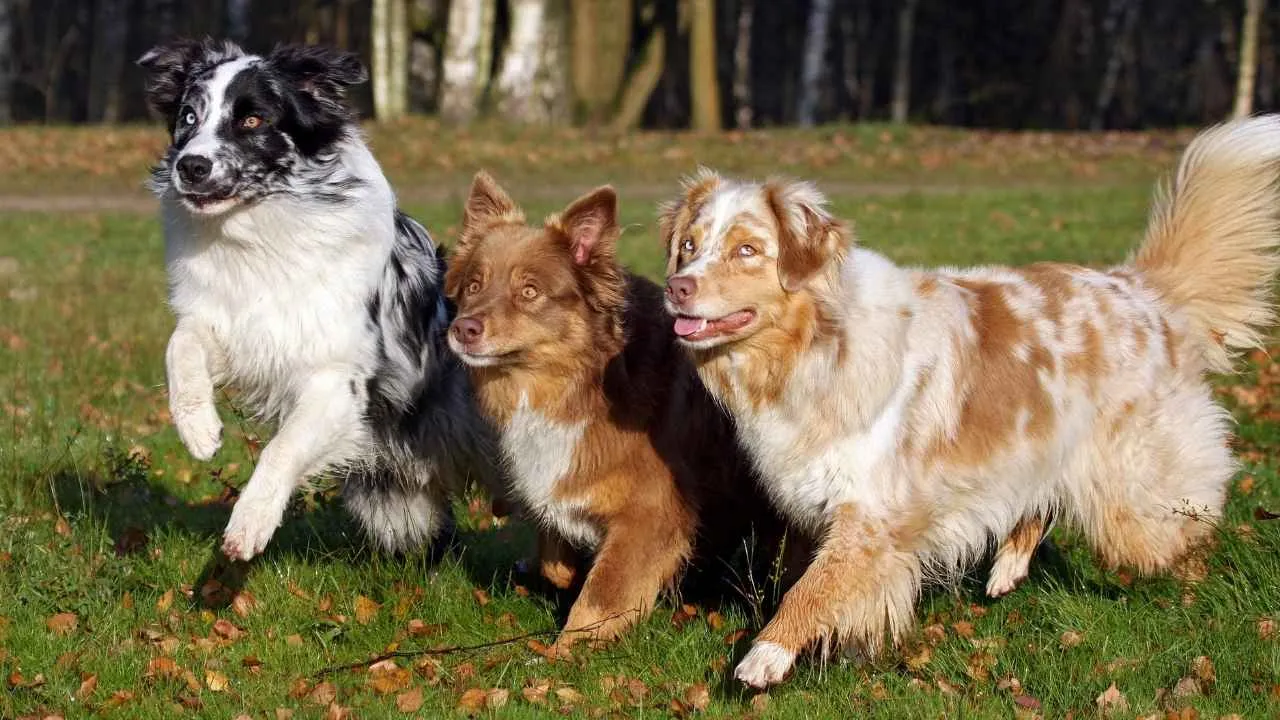
“I see what you feel—before you even say a word.” – The Aussie
They are born in the ranch lands of the United States, despite their name, according to the American Kennel Club. The Australian Shepherd brings more than just a work ethic—it brings heart.
This breed isn’t just beautiful to look at; it reads human emotions like a second language. Australian shepherds have a gentle nature and an uncanny ability to sense stress and panic attacks.
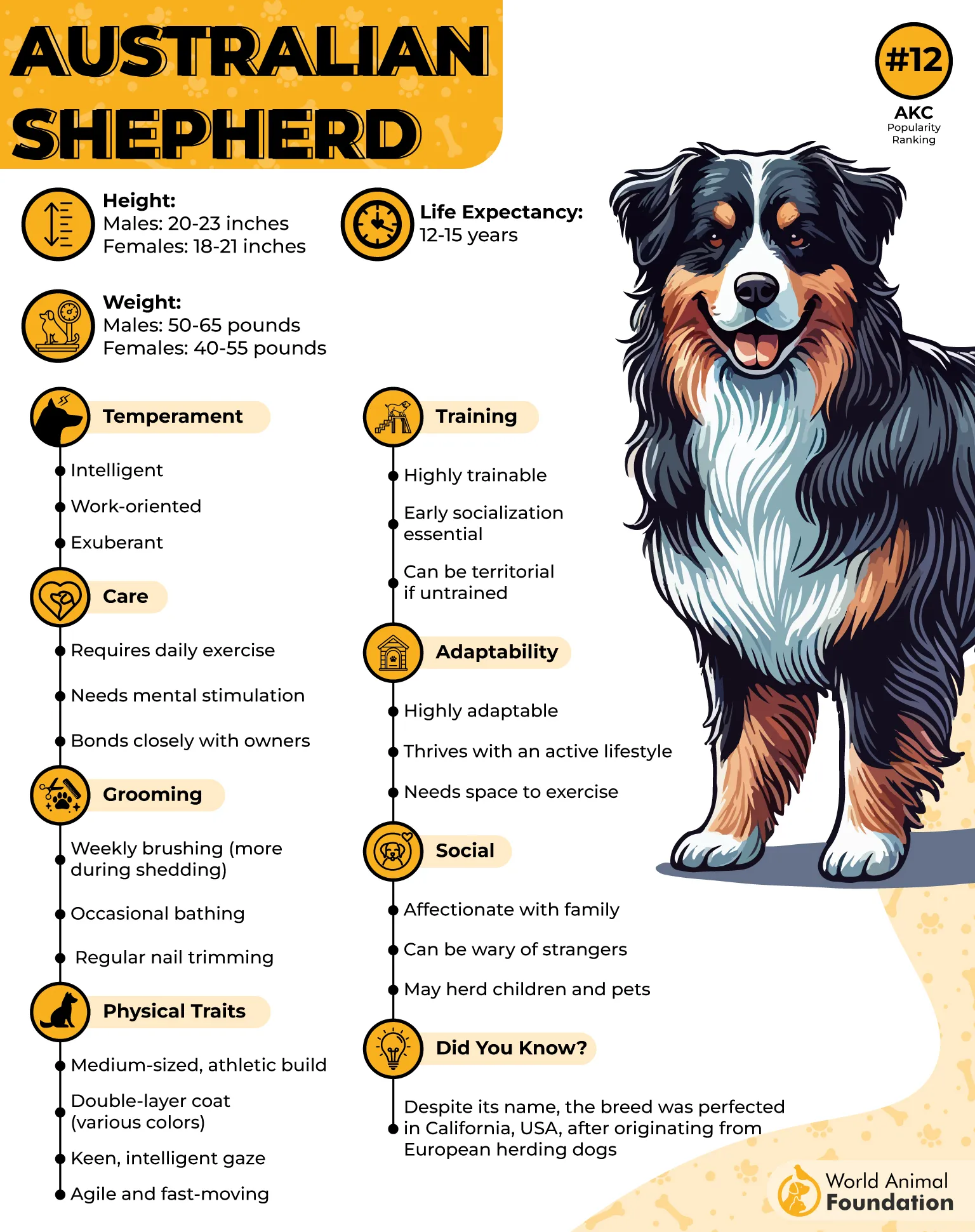
As service dogs or companion dogs, they’re often a step ahead, quietly offering support when it’s needed most.
Though full of energy, they’re incredibly attuned to their people, making them a top choice as a potential therapy dog. They thrive when they’re part of the family and truly shine when they have a job, like comforting you on tough days.
Traits for Therapy Dog
Highly intuitive and alert to emotional shifts
Calming yet energetic presence
Loves staying close to their person
Great with routines and responsive to training
2. Belgian Malinois

“I’ll protect your heart like I protect everything else.” – The Malinois
The Belgian Malinois is strong, focused, and incredibly loyal. But beneath that serious exterior is a soft side made for deep connection.
Known for their discipline, these dogs also offer surprising therapeutic benefits, especially for those with PTSD or mental disabilities.
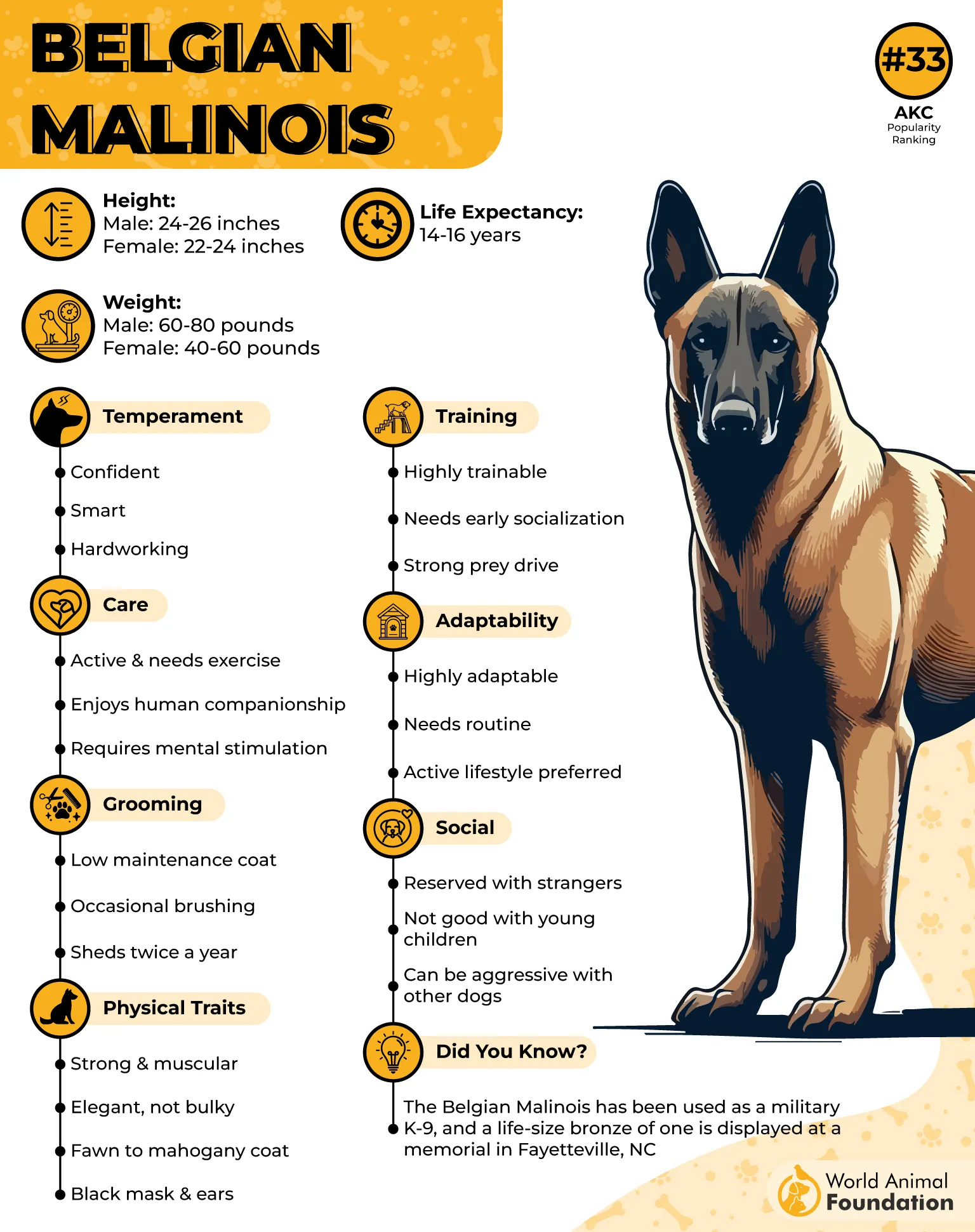
They form strong bonds with their humans and are always on alert, tuned into even the slightest emotional change.
Their personality traits include confidence, intelligence, and a natural drive to help. When trained for emotional support, they offer the best therapy for people who need grounding energy and structure. They’re not cuddly couch dogs, but they are fiercely devoted and attentive to your needs.
Traits for Therapy Dog
Naturally alert and emotionally responsive
Thrives in a job-focused therapy role
Steady presence for anxiety regulation
Loyal and dependable in stressful environments
3. Golden Retriever

“If it makes you smile, then I’m doing my job right.” – The Goldie
Golden Retrievers are one of the most popular dog breeds in the U.S.—and for good reason.
Their friendly disposition, keen intelligence, and warm spirit make them the gold standard in emotional support. These dogs bring smiles wherever they go and offer the kind of unconditional love that soothes even the heaviest hearts.

This low-maintenance breed is well-suited for people of all ages, especially children and seniors. Their high energy keeps them engaged, and their patience makes them perfect listeners.
As therapy or service dogs, Goldens tune into their humans’ needs with understanding, according to US Service Animals.
Whether it’s a hospital visit or just a hard day, they’re always ready with a wag and a nuzzle.
Traits for Therapy Dog
Friendly, non-intimidating presence
Easily trainable and eager to please
Emotional sponges—absorb stress, give calm
Great with group sessions or one-on-one support
4. Labrador Retriever
“I don’t care what mood you’re in—I’m here for it, and for you.” – The Lab
Among the most beloved dog breeds in the U.S., the Labrador Retriever is a natural when it comes to being an emotional support dog.
Labs are gentle, cheerful, and wonderfully intuitive. Their love for people runs deep, which makes them ideal for animal-assisted therapy in schools, hospitals, and homes. They are also a great choice for service dogs.
Whether it’s helping someone through grief or easing everyday anxiety, a Labrador retriever brings calm without needing to try.
They’re incredibly adaptable and form bonds quickly, always ready to sit, stay, and soothe. Though they do shed and love a good splash, their heart is always in the right place.
Traits for Therapy Dog
Always joyful and emotionally present
Adapts easily to different people and environments
Loves routine and human interaction
Great with children and older adults alike
5. Papillon
I may be small, but my heart can carry yours.” – The Papillon
Among small dogs, the Papillon stands out as one of the great therapy dogs. With their affectionate nature and gentle temperament, they’re perfect for emotional support work, especially in spaces like hospitals and therapy settings where a big dog might overwhelm.
These elegant little pups don’t require much grooming despite their silky coat, and they’re known for their intelligence and joyful personality, according to Wikipedia.
Papillons thrive on connection. Their size makes them ideal lap companions for those in wheelchairs, beds, or who simply need a calming touch.
Whether it’s a child with stress or an elderly patient who just needs someone to sit quietly by, Papillons provide support without saying a word.
Traits for Therapy
Calm and comforting in close contact
Adapts well to structured therapy work
Low-maintenance for caregivers
Sensitive and emotionally in tune
6. German Shepherd
“I’m not just strong—I’m strong for you.” – The Shepherd
Though known for their working abilities, German Shepherds are also excellent therapy dogs when raised with purpose and love.
Their affectionate nature, loyalty, and protectiveness make them powerful emotional support dogs, especially for individuals who need structure and grounding.
While one of the higher energy breeds, they are deeply responsive and trainable. From guiding those with PTSD to comforting children with sensory sensitivities, German Shepherds provide support with a calm yet confident presence.
With early socialization and guidance from puppyhood, they grow into dependable, emotionally intelligent companions.
Traits for Therapy Dog
Protective but not overpowering
Eager to serve and emotionally intelligent
Focused, steady, and observant
Excellent with routines and deep human bonds
7. Doberman Pinscher
“I’ll sit with you, stay near, and keep every worry away.” – The Doberman
Dobermans may look imposing, but underneath is a sweet and sensitive soul. These emotional support dogs are great therapy dogs in the right settings, especially with special training.
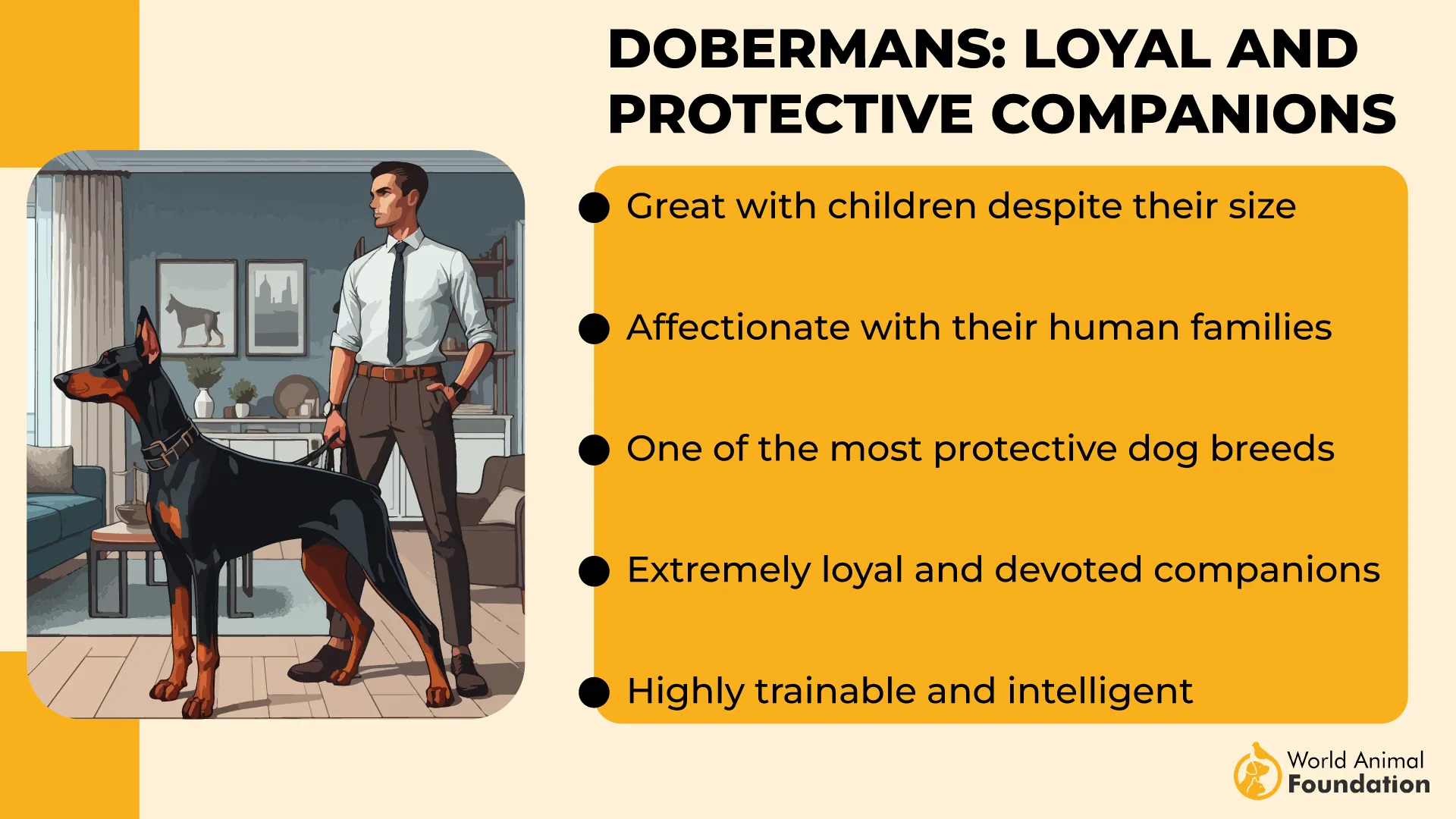
Whether it’s in nursing homes, therapy rooms, or just at home, Dobermans love to spend time with their humans. They have expressive eyes and a physical closeness that helps people feel safe and seen.
Unlike some different breeds, Dobermans have a stable energy level that suits both active and relaxed environments, according to Britannica. With trust, they show their true affectionate nature and become deeply committed companions.
Traits for Therapy Dog
Protective yet emotionally soft
Builds deep trust with consistent care
Quiet and grounded in therapy spaces
Loyal and expressive—makes clients feel secure
Conclusion
Certain breeds are simply built for healing hearts. With their affectionate nature and calm energy, these dogs shine in any mental health setting. They’re more than just pets—they’re partners in mental health.
The best therapy often starts with a warm nuzzle or a gentle presence, and good therapy dogs know exactly how to offer that support. Breeds that are highly intelligent adapt quickly and respond to emotional shifts with surprising sensitivity.
While some need more exercise than others, all bring comfort in their own way. These emotional companions remind us that sometimes, the best support has four legs and fur.


